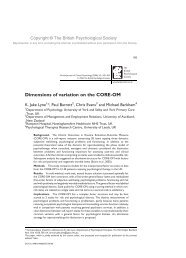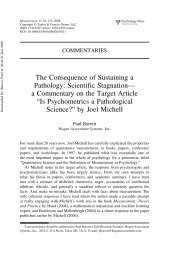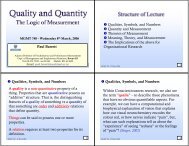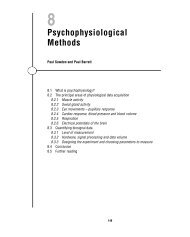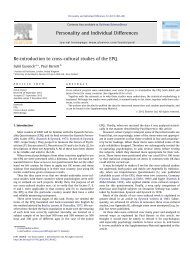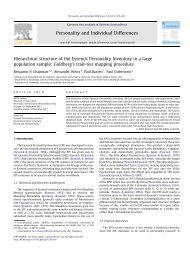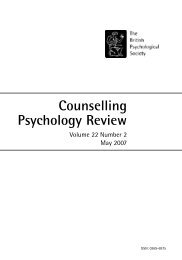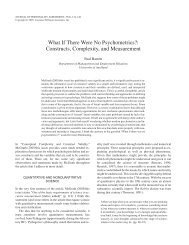Evidence-based IO psychology
Evidence-based IO psychology
Evidence-based IO psychology
You also want an ePaper? Increase the reach of your titles
YUMPU automatically turns print PDFs into web optimized ePapers that Google loves.
Systematic reviews are, essentially, a way of analyzing existing research using explicit and<br />
replicable methods, allowing conclusions to be drawn about what is known and what is not<br />
known in relation to the review question (and within the limitations of the method). Similar, but<br />
not identical to the traditional meta‐analysis, systematic reviews are studies of studies. Metaanalyses<br />
are a type of systematic review but one that uses only quantitative data and statistical<br />
synthesis and focuses on a question repeatedly addressed in the same way by researchers<br />
rather than a practice question or problem. As with meta‐analyses, systematic reviews are<br />
conducted out of recognition that single empirical studies, although useful and sometimes<br />
informative, should not be emphasized because their biases and limitations cannot be fully<br />
accounted for. Looking at all relevant studies, systematically gathered, constitutes more reliable<br />
evidence.<br />
Thus, in the context of evidence‐<strong>based</strong> practice, neither traditional literature reviews nor metaanalyses<br />
are especially useful. First, traditional literature reviews are open to many forms of<br />
bias. For example, reviewers do not make clear how they have selected the studies they have<br />
included, do not critically appraise them in an explicit or systematic way, and do not usually pull<br />
them together or synthesize findings across studies. Second, traditional reviews do not usually<br />
focus on a specific research, practice question, or problem. It is this latter point that also<br />
differentiates a systematic review from the quantitative meta‐analysis used traditionally in I–O<br />
<strong>psychology</strong>. The process of making evidence‐<strong>based</strong> decisions requires more focused and tailored<br />
reviews of evidence where both a practice question or problem and the conditions to which the<br />
evidence might be applied are taken into account.<br />
7



